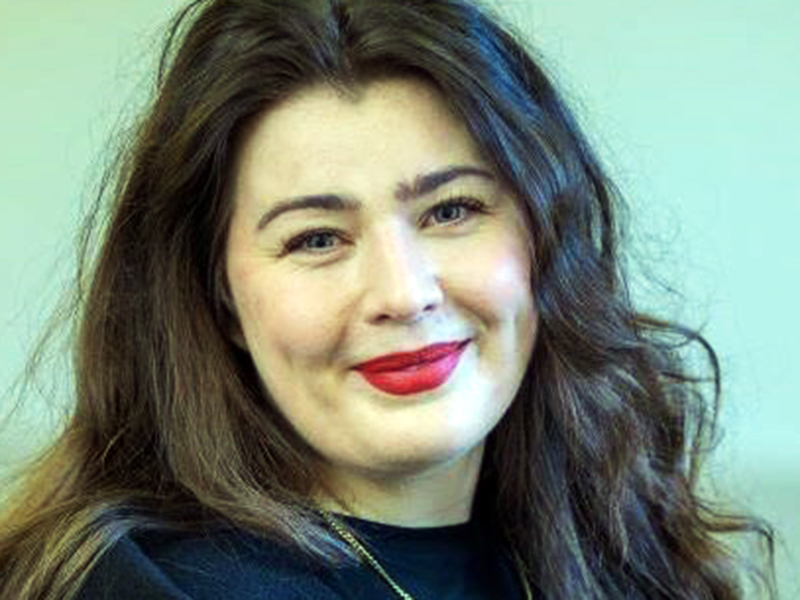Lydia Murphy explores the value of a human rights-based approach to social justice in Scotland
Do you know what it means to take a human rights-based approach? Do you know how human rights relate to your work?
Often human rights are thought of as something ‘over there’, applying to those abroad or those facing the most extreme forms of marginalisation.
The often-quoted Eleanor Roosevelt affirmed that this is not the case. Back in 1958 she famously said: "where, after all, do universal human rights begin? In small places, close to home". We all have human rights, and they apply to us in the UK as much as they do elsewhere. If you work in the third sector, it is extremely likely that your work is supporting people to realise their human rights.
In Scotland, we are making significant progress with bringing our international human rights into national law with the recent incorporation of the UNCRC (United Nations Convention on the Rights of the Child) and the proposed Human Rights Bill for Scotland. However, these are only the most recent developments.
In the last 10 years there has been real progress in developing rights-based approaches to address poverty in Scotland. The introduction of the Fairer Scotland Duty in 2018 placed a responsibility on public bodies to take socio-economic inequality into account when making significant decisions. The Social Security (Scotland) Act 2018 explicitly acknowledges social security as a human right, essential for the realisation of other human rights.
Critically, this position supports the destigmatisation of social security. The impact of this ethos was illustrated earlier this year when a majority of a panel of people experiencing poverty agreed that although not perfect, dealing with Social Security Scotland was a far less stigmatising experience than the Department for Work and Pensions.
These have been important steps in introducing the language and practice of human rights into areas of social and economic policy and decision making. Many in the third sector have been at the forefront of pressing for these changes, but there is still so much more to be done.
The Poverty Alliance’s Rights in Action project was developed in this context to support embedding a human rights approach across civil society in Scotland. Since January 2022 we have been running awareness-raising workshops supporting anti-poverty organisations to explore the relationships between poverty and economic, social and cultural rights and to understand their work as human rights work. When we understand our work in this way, it affirms that human rights frameworks and principles are ours to use.
Alongside this, we have brought together two groups of community organisations to take part in action learning sets to analyse and plan action to tackle poverty using a human rights lens. Action learning is a participatory, action-oriented approach to solving workplace problems. Over the past two years We have also supported two participatory research projects exploring the intersection of marginalisation and human rights breaches for asylum seekers in Scotland. We are currently supporting a third with members of the Roma community.
On 30 April we will be launching Learning together for change: Community Organisations Advancing Human Rights in Scotland. This report shares insights gained from the first group of grassroots organisations brought together using the action learning method. We highlight practice change and reflections from organisations working to take a human rights-based approach to their own practice.
The report explores how a small grassroots organisation seeing repeated long term emergency food referrals takes action to get more money in people’s pockets to reduce the need for emergency food aid; how a family support organisation is working to ensure that the systemic issues facing families and identified and rectified; how a small volunteer-led organisation introduced the idea of what it means to take a human rights-based approach. We hope that this learning can help spark action in organisations who are facing similar challenges.
There was also learning for Poverty Alliance as an organisation working to support others to incorporate human rights-based approaches into their work. This project made clear something that many of us already understand. It is vitally important to empower local activists to use human rights frameworks and language. This makes human rights feel relevant and rights realisation feel possible for community members in our most under-served communities.
Our sector works at the hard end of human rights breaches every day; the organisations who took part in the project emphasised that peer support and welcoming spaces to learn, grow and incorporate new ways of thinking really help. They also highlighted how important it is to make consistent explicit linkages to human rights frameworks and principles to support deepened learning.
All organisations involved reported that taking part had helped them further advance economic, social and cultural rights, and almost all of the organisations commented, unprompted, that they now saw their work fundamentally as human rights work. I hope that this report and the wider work of Rights in Action can support us in the sector to reach this understanding too.
Human rights frameworks and principles are for us all to use. Poverty is a cause and a consequence of human rights violations, and understanding it as such can help us to build a more just future for us all.
Lydia Murphy is development officer at The Poverty Alliance.







